Who Killed Me?—Dick Powell
I never speak to June—June Allyson, my happy little wife—about those nightmares. They all have a violent sameness. I am the corpse. One night I’ll be the corpse propped up on the witness stand with the district attorney yelling at me, “Don’t you sit there trying to tell the court that the defendant is guilty just because he mowed you down with a machine gun. You can’t prove murder without malice, and when he shot you he was the happiest man in the world!”
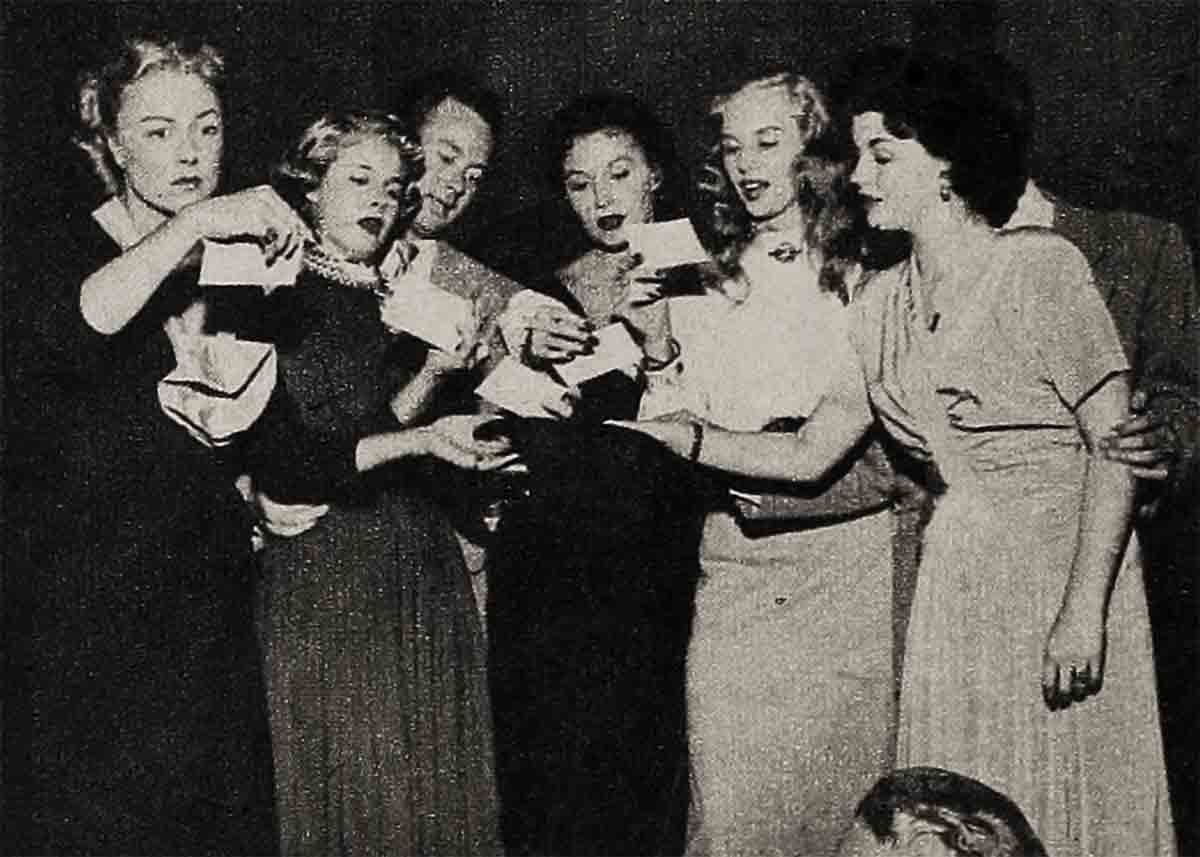
Then again I’ll be lying stone cold in a pool of blood, knifed to death by the butler. Detectives are swarming all over the place, suspecting everybody but that sanctimonious servant standing right in their midst, stiletto dripping red, laughing out loud and always looking like Orson Welles. When I try to tell them who did it they turn into sneering Boris Karloffs and reply, “Some detective you are. You’re just a ham actor. Besides, everybody knows the butler is never guilty.”
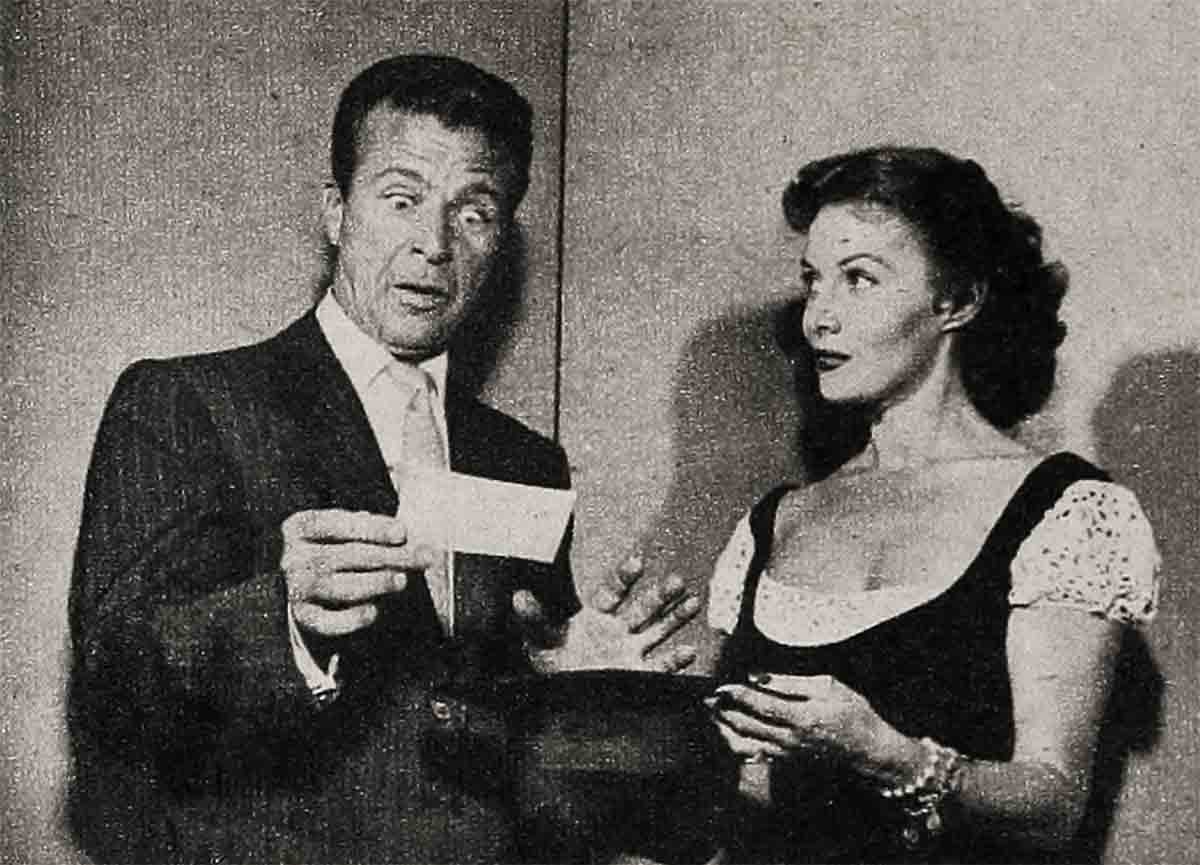
Well, I wake up in the middle of the night out of these horrors and look over at Junie. She’s always smiling in her sleep. And sometimes, giggling. I’d ask her what she dreams about but she’d only ask me the same thing and in the end insist that I go to a psychiatrist, or at least cut out those late hour snacks before bedtime.
That’s why I decided, somewhat humorously you understand, to do something about these grim nocturnal visitations of mine. I figured that if I could concoct a plot crazier than my dreams the nightmares would go away or at least simmer down. So I called up the editors of MODERN SCREEN, told them that I had trapped a few friends into coming to the studio for a party after my Tuesday night show. Would they care to come around with cameras?
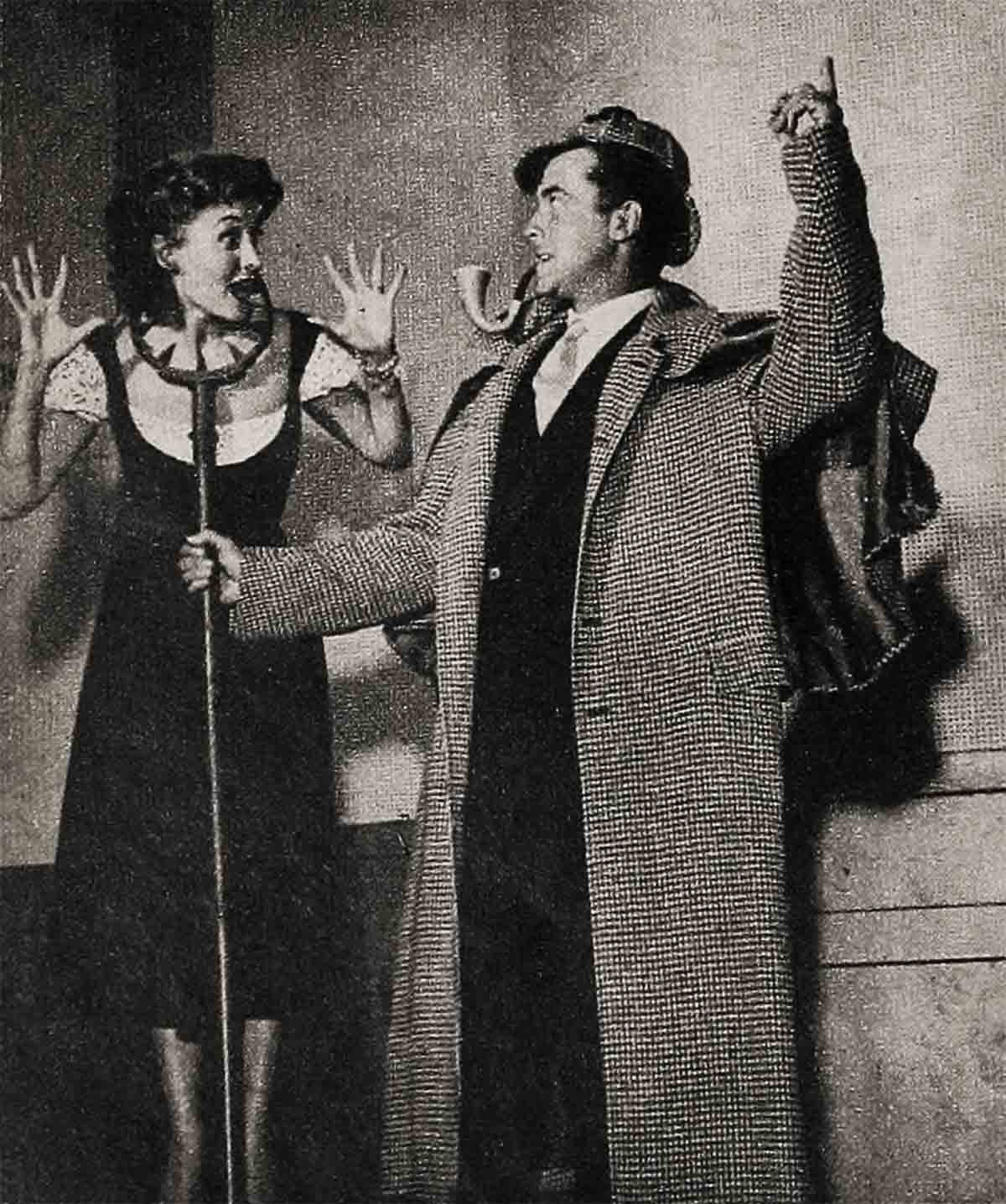
They would.
We had a good radio show that night. If I do say so, Richard Diamond (that’s me) did very well. He got kicked around quite a bit but in the end he solved the mystery and took his bows, the big ham. Can’t say that I blame him, what with people like Virginia Field, Richard Greene, Mona Freeman and Pat Nerney, Rhonda Fleming, Mara Lynn, Joan Evans, and that elegant new young actor, Jack Grey, for an audience.
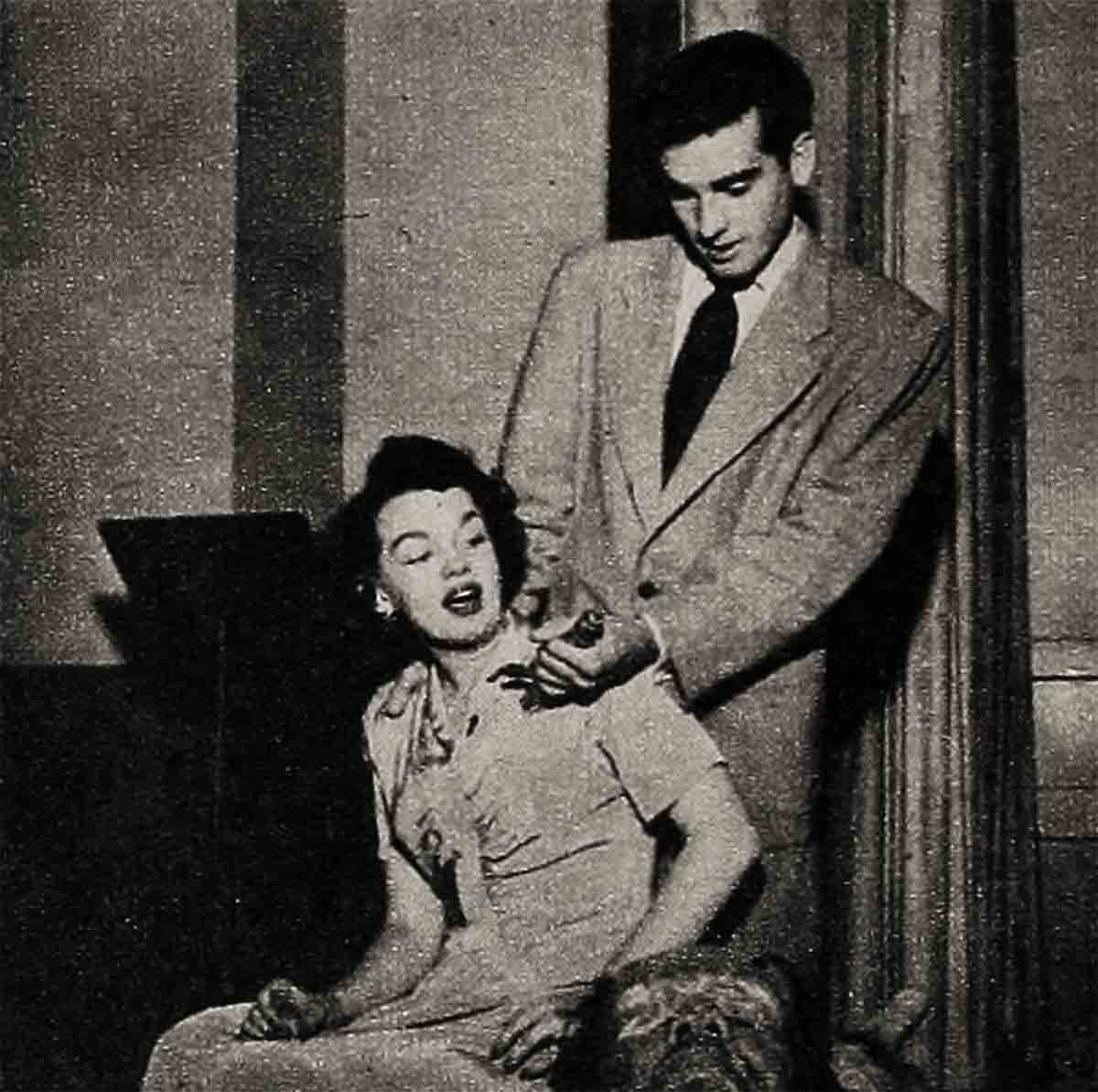
As soon as the announcer said, “This is NBC,” I put down my script and took up my guests, most of whom never had a chance to participate in that wonderful pastime—the fine art of murder. They were delighted. June, who couldn’t be on hand due to the pending blessed event, had written the word suspect on little slips of paper. One for each guest, except for a lone slip on which was written victim. We drew the slips out of the hat and, for the sake of staying in character with my nightmares, I palmed the slip so I’d be the corpse, a role with which I’d become familiar.
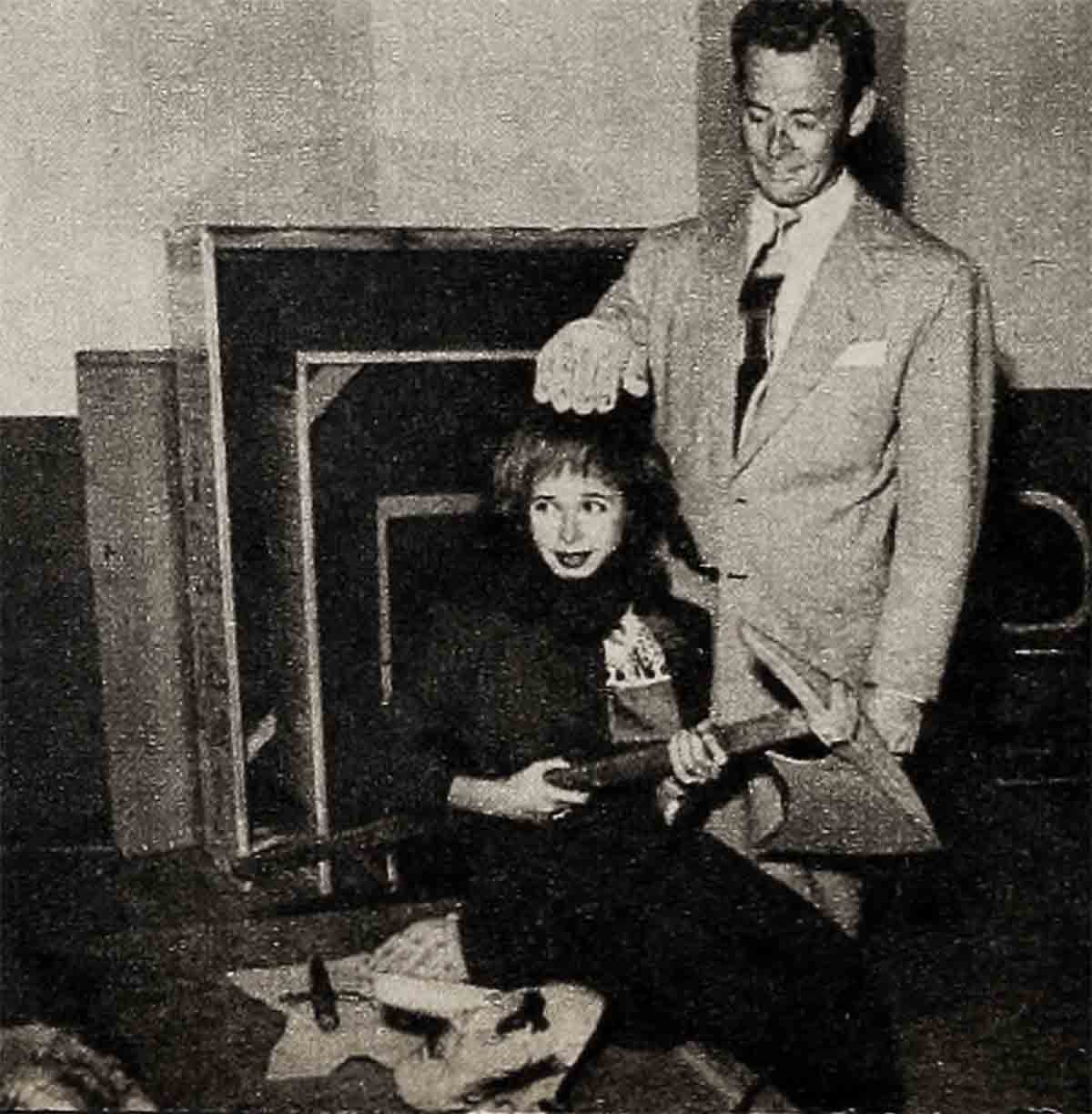
Then my guests proceeded to a large stockpile of murder weapons and were allowed to take their choice. The idea behind all this, in case you, too, should like to give a murder party, is to confuse the victim. The guests get in a huddle, have five minutes to decide on a plot and who among them did it. Then the victim stretches himself out in corpse position. If he can find out who killed him he’s allowed to live—or he might even get a prize.
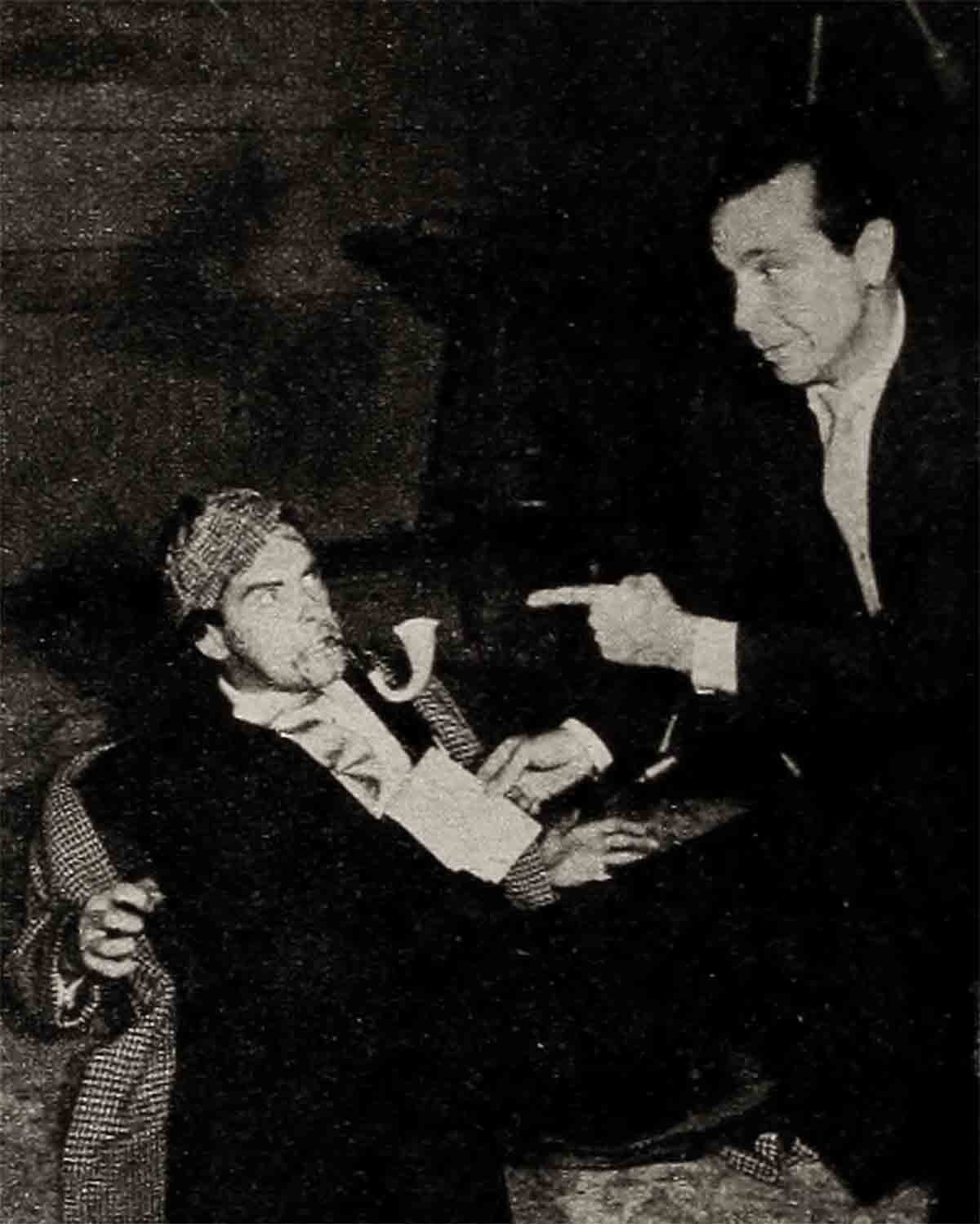
I guess you can figure out the rest. The pictures practically tell the story. They stretched me out on a table in studio C, ran me through with a prop sword and told me to take it from there.
There were practically no clues at all. Just a gang of innocent looking characters. Virginia Field for instance. She looked as if she had a halo spinning around her head, but I passed her up as a suspect. Too beautiful. I saw the Frankenstein-like equipment Mona Freeman and Pat Nerney were toying with and thought, “Well, maybe.”
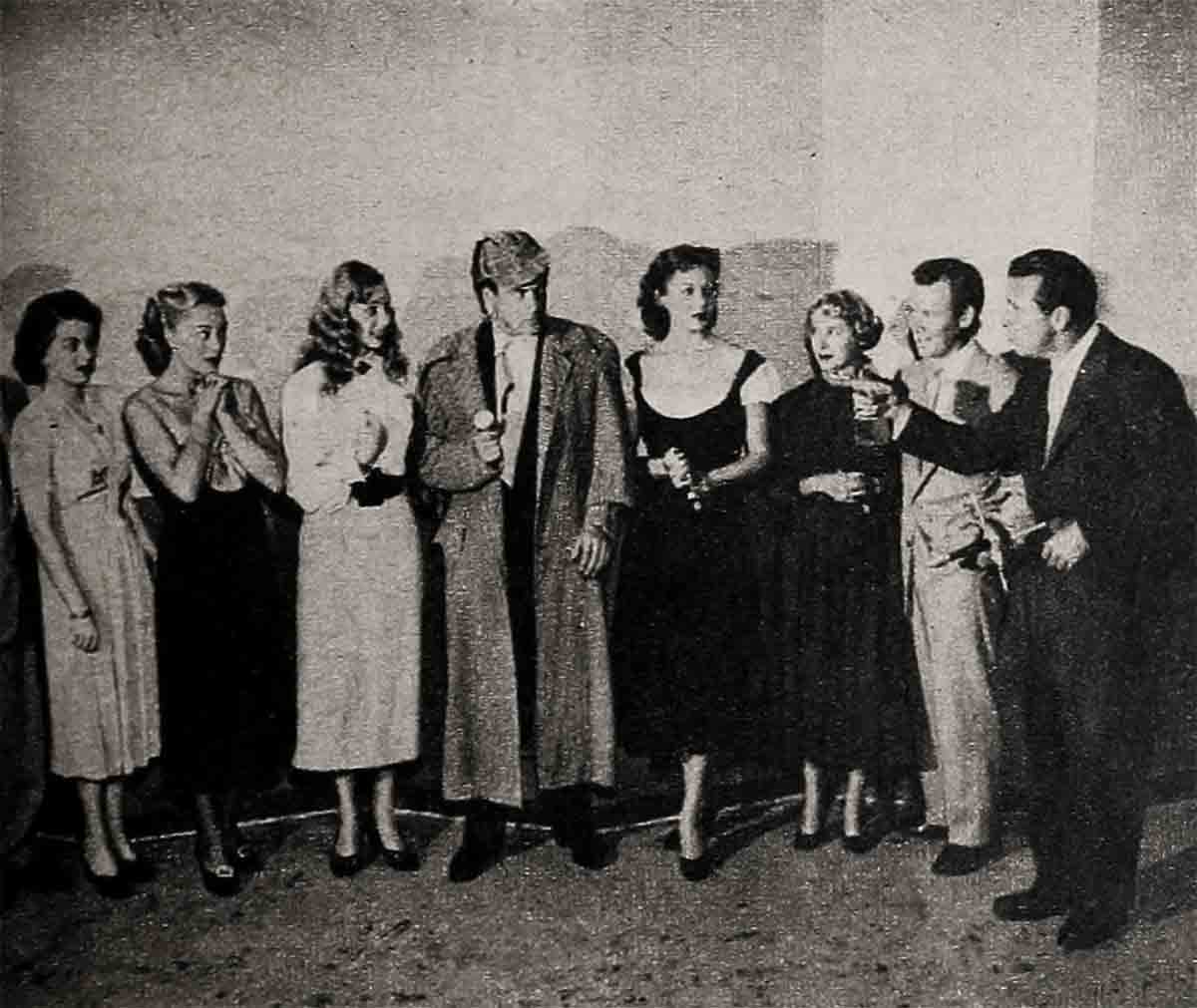
To make a short case of a hilarious party, I lined up all the suspects, still wearing that sword through my middle. (Don’t worry, it only hurt when I laughed.) Before long I had the answer. Dick Greene was the killer. Why? Well, for one thing, all detectives (that’s me) have an instinctive hatred for Sherlock Holmes. He knows too much. For another, Greene is an expert fencer. It was only natural that he should choose the rapier as a murder weapon. The motive? When Dick confessed, he explained that the guests figured the only reasons there could be to kill a radio detective would be (1) he was a lousy performer, which they ‘insisted I wasn’t, and (2) he might be exposing a murder plot on his show.
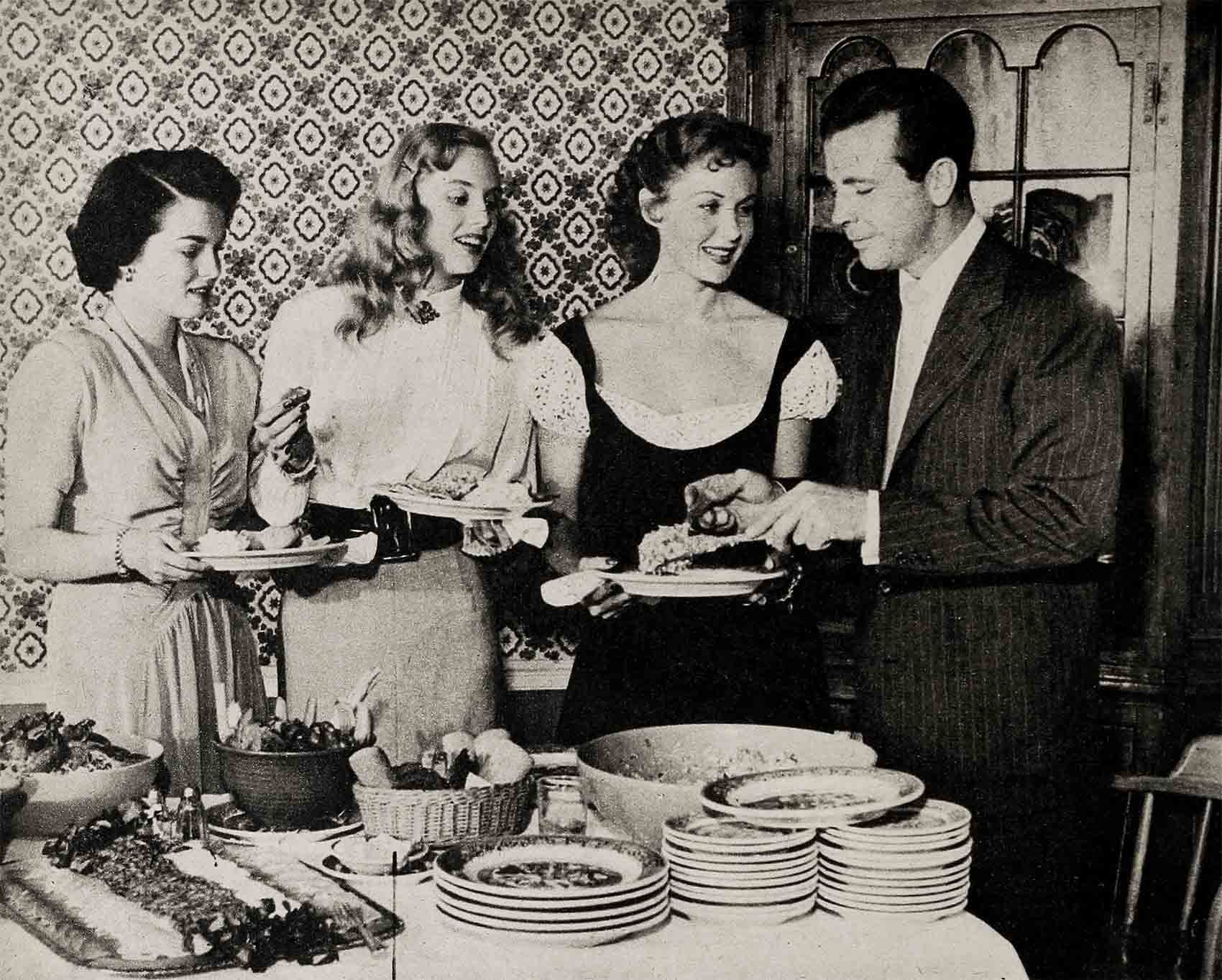
Hence the solution: Richard Greene, disguised as Sherlock Holmes, planned to heist a jewelry store. He was tipped off that the exact crime had been written into my show that night by a writer he knew. Result: if he eliminated me and stole all the scripts the cops would never suspect him. And how did I find out? Very simple, my dear Watsons. Looking around the studio—I noticed that right after the broadcast every script had disappeared, except the one in Dick Greene’s pocket!
That did it. I want to point out that actors named Greene, living or dead, have no resemblance to guys who rob jewelry stores. Actors do like to raid a table loaded with food, though, because all of us have been hungry at one time or another and figure we’d better stoke up every chance we get. So we all hiked over to Bob Cobb’s Vine Street Brown Derby, where they tossed a fine repast for the people who killed me.
P.S. I ate like a fool but I don’t have those nightmares any more. After all, how could I dream up a plot crazier than this one?
THE END
—BY DICK POWELL
It is a quote. MODERN SCREEN MAGAZINE FEBRUARY 1951

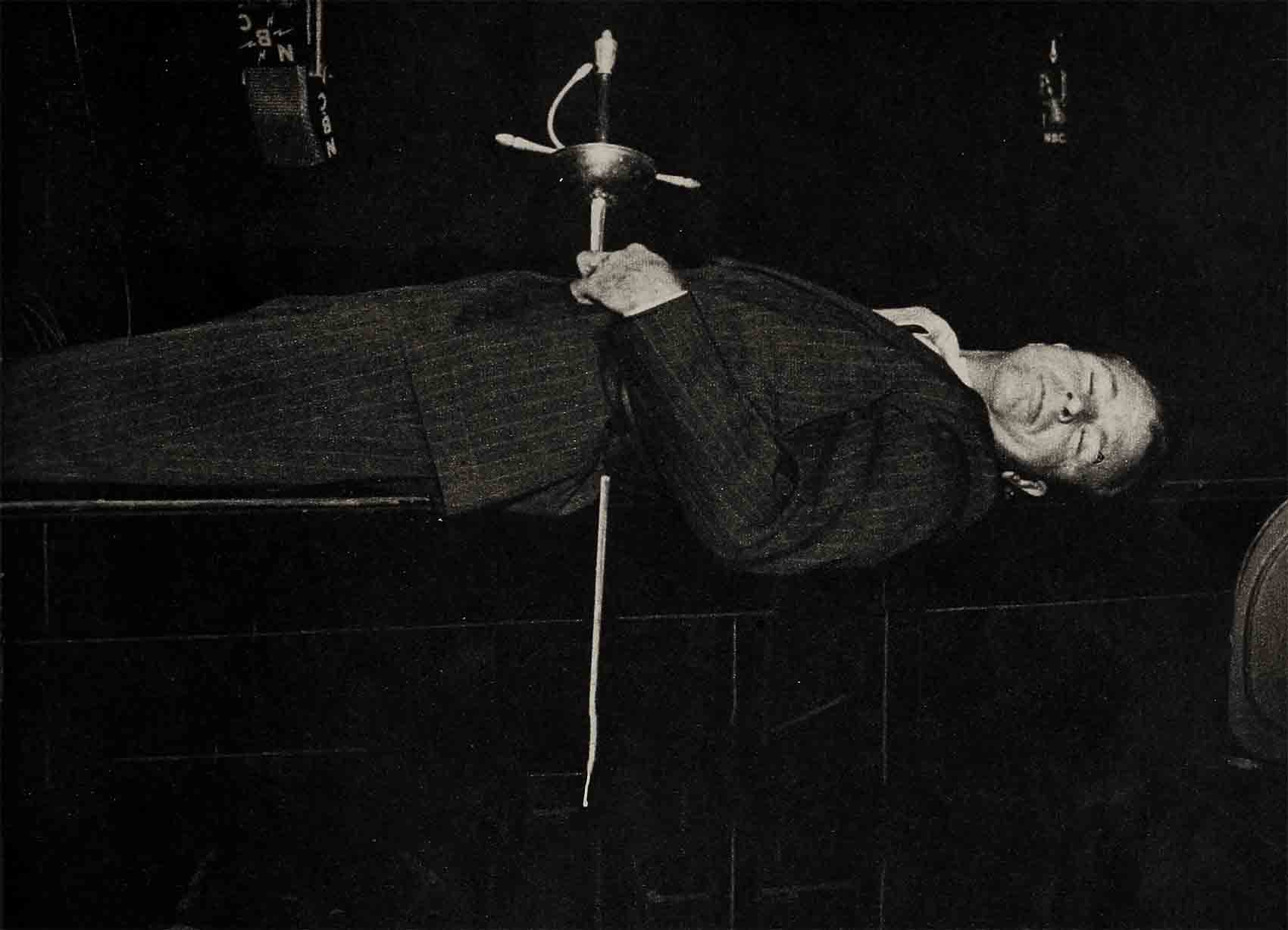




No Comments